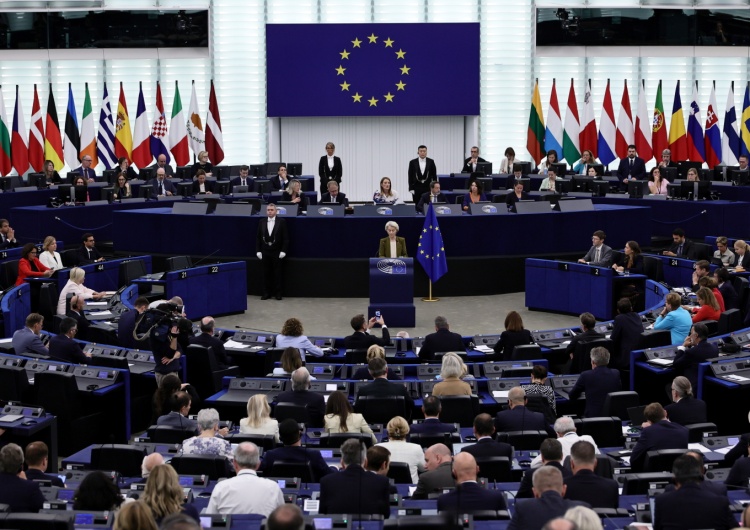Bożena Ratter: household distribution is the distribution of society, nation and state
date: October 05, 2023 Editor: Anna
A fewer years ago, Tomasz Kuba Kozłowski invited to a gathering with Eve of Pachoska and David of Osinski, editors of the book "Modernist Lviv" and Anna Tyńska Ząbecki, author of embroidery on canvas Panorama of Lviv. Embroidery became a model of the book cover.
The book is the aftermath of an global conference, organized in December 2008 by the Department of Literature of Positiveism and Youth of Poland of the Faculty of Polish Studies of the University of Warsaw, carried out as part of a broader task The Experience of Central and east Europe in Modernism culture. The participants of the task recognized the image of Lviv as 1 of the capitals of Polish culture between 1864 and 1939.

This extensive, multi-threading work based on investigation of historical sources, individual documents, relations of travelers, publications, societies, museums, technological and beletrist literature shows a real image of the centre of Polish national life and should besides become a reading of politicians, especially their advisors, promoting the image of Lviv and east Borders of the Republic as a mythical land.
Ewa Paczoska recalls the account of Danish critic and literary historian visiting Poland respective times with lectures in the 1980s and 1990s, Georg Brandes, who arrives in Lviv in 1898.
...here for the first time I saw Poles as a free nation. I knew respective Poles from Prussia, and I do not know very well individual prominent individuals from Poznań; with Poland under Russian partition I knew well during my 4 times stay there, but I could never see the life of Polish, developing without any coercion, under my own management, with the right of assembly and full freedom of speech. (Jerzy Brandes Lviv, on the authority of the author, translated from the first Józef Klemensiewicz)
For many Polish admirers and friends, Brandes was “our man” in Europe, a “kind foreigner” informing the European public about Polish culture.
Prussia emphasized, that Brandes, looking at this culture from an external perspective, allows Poles to see what they themselves do not see or do not want to see. (Modernist Lviv)
After 120 years, not only do we not have "friendly foreigners" in the European Union, but we have unkind countries and our culture of countrymen there. Is this due to deficiency of education?
Brandys' optics would be useful to the Minister of MKiDN as well as to many another “scientists” of the national heritage of the Republic in the east Borders of Poland, so eagerly dismissed to another nations. Is this due to deficiency of education?
What does Brandes see in Lviv? First of all, the literary and artistic environment, but besides the studio of engineer Rychnowski, physicist, photographer and inventor of 21 Austrian, Hungarian and German patents for heating boilers, air conditioning and electrical equipment.
Jerzy Brandys: I liked the artists the most Jan Styka, who decorated the large hall with a large painting, including the past of Poland. In Lviv there is an excellent panorama, which he painted with younger Cossak; this panorama depicts the conflict of Raclavice, in which Tadeusz Kościuszko beat the full Russian army with his tiny fistful on April 4, 1794, ... I share the worship of the Stick for this dictator of Poland, undoubtedly 1 of the largest and simplest people, embodying the best qualities of the nation.
A lot of space is devoted to Brandys in his visit to the Gymnastic Society “The Falcon” which he writes “is 1 of the clean Polish institutions, which has been spreading its wings over all Polish cities for 30 years, in addition to the Russian occupation, and all the cities of the fresh and old planet (Chicago, Berlin) where there are only more Poles... The number of companies reaches 100 connected since 1892 in the Union with the authoritative office in Lviv. And the intent is this: all nation needs to make its health, courage and hardness; it needs discipline and unity... We want to be a healthy and brave nation to defend our rights and to carry out our social duties. (Jerzy Brandys, Lviv)
At the turn of the 19th and 20th centuries, Lviv was an crucial centre of historical pedagogical research, played a function in shaping the past of education as science, defining its subjects, tasks and methodological assumptions- Ewelina Leszsz presents Lviv models of education in the book Modernist Lviv.
On 30 September 2023, the Institute of Ordo Iuris and Collegium Intermarium organized in Warsaw an global technological conference Cultural aspects of household policy with the participation of excellent speakers from Poland and the planet and discussions at a advanced substantive and intellectual level. Care for the future of the nation and the world, hazard analysis and trying to find a prescription like our ancestors. Our wise, well-bred and educated countrymen in the household and school struggled with them, saving us from barbaric ideology.
The challenges and dangers of that era, the perpetrators of which proceed the work, are described by Ewa Paczoska Zdzisław Dębicki in the work of the Basics of National Culture -Warsaw 1922.
The distribution of families is the distribution of society, and what is going on, of nation and state. This has been justified by many very eloquent examples, and we have a fresh example of this fact in Russia, the fall of which began with the relaxation and failure of household ties. Russian intelligence, which adhered to social radicalism, did not attach importance to the "old superstitions" of Europe, considering them as an expression of social and social hypocrisy...it cut heavy the body of the family, enfranchised its interior life, gave folga to the egoisms of parents and children, sanctified the concubines, introduced an advantage of the senses over the feeling in free relationships between men and women. Especially the “woman-man”, raised in these spheres, has so far deviated from the kind of “woman-mother”. ...it has become closer to the kind of straights, or even to a specified harlot. It has ceased to be the carbon of the housefire.
... Time has done its thing and we cannot hide that the transformation that has taken place has weakened our household ties. The tremors of the large war have made the rest, and the hard economical conditions that have upset the intelligent household so powerfully after the war do not cease to be question marks over its future.
The very beginning of a household present becomes a burden beyond force for the individual. To establish a home, make a household nest, have and rise a fewer children, educate them, that is, to put them on an costly school for respective years and cover the expenses associated with it - this is what many young people are filled with fear and refrain from marriage.
Human egoism, the pursuit of comfort, the inability to renounce certain pleasures of life, the false attitude to what we call civilization and culture, and to share in what ever-wider layers claim the law, right in principle, incorrect in exploiting it superficially and entailing considerable cost-all this is outlined on the horizon of the household as an approaching dangerous cloud.
The number of childless marriages increases rapidly. The limitation of offspring to 1 or 2 children is on the agenda. Divorces multiply, which is simply a sign of bad marriage. At the same time, at the top and bottom of society, we are increasingly dealing with unmarried herds, with loose unions, which, among the intelligence of the liberal professions, favours overcrowding offices and universities by women.
Oh, my God.















